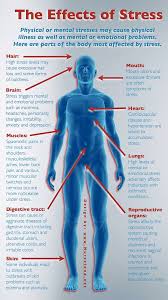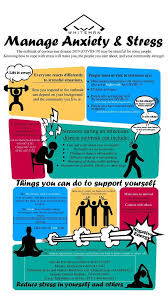What is Stress?
“stress” as pressure or worry caused by problems in somebody’s life or by having too much to do,” exemplified by phrases like “emotional/mental stress” and “to suffer from stress.”
Stress is your body’s natural response to a challenge or demand. It’s a physical, emotional, and mental reaction to situations or events that you perceive as overwhelming, threatening, or difficult to handle. Stress can be triggered by a variety of factors, such as work pressures, financial issues, relationship conflicts, or even positive changes like getting a promotion or moving to a new home.
In scientific terms, stress is defined as the psycho(mental)-physiological(physical body processes) response of body to something that is thought of as pleasant or as unpleasant by person who is experiencing it meanwhile in physical terms, stress means strain, pressure, or force on a system that is the body reacting to the environment through build up of internal pressure and strain that if prolonged can cause fatigue or damage to the body.

Effects of stress

Stress can have numerous effects on body, behaviour, thoughts, emotions and on health
- On behaviour: difficulty in awakening and sleeping early. emotional changes like sudden happiness or sadness , sometimes it may also effects eating habits like overeating or loss of appetite and inactiveness
- On body: high blood pressure, anxiety, depression, many heart problems, backache, less efficient immune system, cold and hot flushes, frequent urination, many skin problems like rashes, dryness and numbness, diabetic issues
- On thoughts:difficulty in decision making, concentration, forgetfulness and remembering, negative self critical thoughts, distorted ideas, and many more
- On health(mental and physical): stress effects our emotions very badly like sudden sadness, tension, phobias, low self esteem, fatigue, guilt and moody behaviour. it effects our heart,stomach ulcers, nausea, asthma, skin problems, irregular periods and diarrhea.
What causes stress?
Everybody has different reasons of stress, according to the American Psychological Association (APA), 75% of adults in the United States reported experiencing moderate to high level of stress in past months. This stress can lead to physical and mental symptoms.
People respond to stress in different ways. What feels overwhelming to one person might not bother another at all. In fact, almost anything has the potential to cause stress, and for some, even thinking about a stressful situation—or dealing with multiple small stressors at once—can trigger anxiety.
There’s no clear reason why some people handle stress better than others when facing the same challenge. Factors like mental health conditions (such as depression), a buildup of frustration, or feelings of anxiety can make certain individuals more prone to stress. Past experiences also shape how someone reacts to stressful situations.
Major life events that commonly cause stress include:
- Work-related issues or retirement
- Financial struggles or time constraints
- Losing a loved one
- Family conflicts
- Health problems
- Moving to a new home
- Relationship changes, including marriage or divorce
Tips to reduce level of stress

Stress is an inevitable part of life, but how we manage it makes all the difference. By adopting practical strategies and making small changes to our daily habits, we can significantly reduce stress and enhance our overall well-being. Whether it’s through better time management, focusing on self-care, or building healthier habits, there are many ways to regain control and foster a more balanced life. Here are 20 tips to help you reduce stress and live a more peaceful, fulfilling life.
- Identify your stress triggers and recognize how you react to them.
- Use positive self-talk to boost confidence and reduce negative thoughts.
- Focus on your strengths and achievements instead of dwelling on failures.
- Avoid unnecessary competition and comparisons with others.
- Practice assertiveness by expressing your needs without being aggressive.
- Accept your limitations and embrace individuality—nobody is perfect.
- Engage in hobbies or activities that bring you joy and relaxation.
- Set aside time for fun and relaxation to recharge your mind and body.
- Exercise regularly to release stress-reducing hormones and improve mood.
- Maintain a balanced diet to support physical and mental well-being
- Talk to a trusted friend, family member, or therapist about your worries.
- Manage your time wisely by prioritizing tasks and avoiding last-minute rushes.
- Evaluate how you spend your time and focus on meaningful activities.
- Plan ahead to stay organized and reduce stress caused by uncertainty.
- Avoid procrastination by breaking tasks into smaller steps and starting early.
- Create a weekly schedule and follow it to maintain structure in your life.
- Set realistic goals and prioritize what truly matters.
- Study or work in short, focused sessions and gradually increase duration.
- Take frequent breaks to recharge and prevent burnout.
- Practice relaxation techniques like deep breathing or meditation to calm your mind.
Stress and good health
most people thought of stress as an unpleasant part of life. Managing stress is essential for maintaining good health, as chronic stress can negatively impact both the body and mind. High stress levels can lead to anxiety, fatigue, weakened immunity, and even serious health conditions like high blood pressure and heart disease. On the other hand, reducing stress through healthy habits—such as regular exercise, proper sleep, balanced nutrition, and relaxation techniques—can improve overall well-being. Taking time for self-care, staying organized, and maintaining a positive mindset can help you feel more in control and promote a healthier, happier life. Prioritizing stress management is key to long-term health and wellness.

